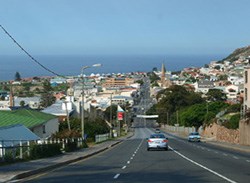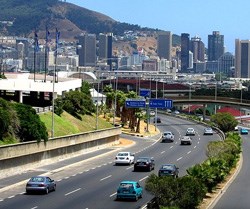





According to the Road Traffic Management Corporation, more than 1,279 people died in motor-vehicle accidents between 1 December 2012 and 03 January 2013[2]. Furthermore, statistics from 1Life indicate that 23% of all death claims result from accidents, where 45% of these accidental deaths are as a result of motor vehicle accidents.

While there is no denying that automobile accident related deaths are incredibly high in South Africa, where surviving a horrific accident is no small feat, sadly very little focus is placed on the risk of severe injury and/or disability. For instance, a vast majority of head injuries are caused by road-traffic accidents which can also lead to a critical limb injury and subsequent disability[4]. There are innumerable injuries that can and do result from motor vehicle accidents daily. These include immobility or being paralysed, which can occur at different extremities such as the loss of a limb. The resulting disability can have a life changing effect on a person's physical, psychological and economical or financial well-being[4]. You can add value to your life by taking out an event based disablement cover in case you need to make a claim that involves an injury, which may be due to an accident certainly makes a lot of sense.
Given these alarming figures and the expected increase to traffic volumes on our roads, people need to remember that it is vital to rest often and travel slowly - keeping a safe following distance and being a courteous driver by allowing others to pass while ensuring that you keep your head lights on when it is dark or limited visibility due to weather conditions.
While frequent rest and keeping a safe driving distance should form part of our holiday travel schedule, there are a few further tips to help you have a safe and enjoyable journey during these Easter holidays:
According to Arrive Alive[1], driving in bad weather is a major cause of accidents as such it is important for drivers to adapt their driving when driving conditions deteriorate as a result of bad weather. It is also imperative that your car is roadworthy and that you stay aware of weather and road conditions at all times. So be sure to check your car before you leave for your trip.
When planning your trips, try to plan your trips so that you do as little nighttime driving as possible. Research shows us that 40% of all traffic collisions happen at night because poor light reduces your ability to see the road, road signs, pedestrians and other vehicles or cyclists[3]. Take extra care during this time.
Always drive with your headlights on for improved visibility - parking lights are not strong enough for driving at night. In fact, it is illegal to drive without your headlights or tail-lights on at night. However, you should turn your headlights from high beam to low beam when approaching an oncoming vehicle or when travelling behind another vehicle, as the light can be blinding to the other driver

Everyone needs to ensure that their tyres are in good condition. Your tyres will deflate with wear and tear associated with driving, that is why it is recommended that you check your tyre pressure before your trip to make sure that they are pumped up to the recommended pressure. Make sure you're using a reliable gauge and a reputable garage.
Music can be an unsafe distraction while driving if you listen to it at high volume. No matter what type of music you're listening to, or if it's through earphones, listening to loud music while driving is dangerous. It not only encourages you to drive faster and it can reduce your ability to hear police, ambulance or fire engine sirens, warning hooters, barking dogs, cyclist bells or even strange engine noises.
A few emergency spares can be very useful in case of a breakdown. A spare tyre should always be kept in the boot and replaced if used on the car. Jumper leads can help you when your battery is dead, while a bottle of engine oil can help to stop your engine from seizing. Lastly, a reflective triangle is essential for your car (as required by law) as a safety warning sign to stop your car from being rear-ended when broken down.
Being able to go way to take some time out with your family is a precious adventure, but plan ahead, take the necessary precautions which could be life changing for you. So, follow these easy few tips and have yourself a safe and hassle free Easter holiday.
*Laurence Hillman is Managing Director of 1Life
[1] http://www.arrivealive.co.za/pages.aspx?i=1347&page=Weather-Conditions
[2] http://www.rtmc.co.za/RTMC/MReports.jsp
[3] http://seriousaccidents.com/legal-advice/top-causes-of-car-accidents/nighttime-driving/
[4] http://www.disabled-world.com/disability/accidents/#ixzz2OY9E2OWI